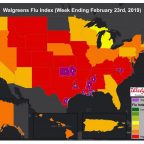Best Regional Colleges in the North for 2018
College Consensus (https://www.collegeconsensus.com), a unique new college ratings website that aggregates publisher rankings and student reviews, has published their ranking of the Best Regional Colleges in the North for 2018 at https://www.collegeconsensus.com/rankings/best-regional-colleges-north/ .
To identify the Best Regional Colleges-North 2018, College Consensus combined the latest results from the most respected college rankings with thousands of real student reviews to produce a unique consensus score for each school. According to College Consensus founder Jeremy Alder, “Like Rotten Tomatoes or Metacritic does for movies, College Consensus gathers the publisher rankings and student reviews from around the web and distills the results into simple, easy to understand scores so students can quickly and easily compare schools. It is the ranking of all rankings, so to speak.” Learn more about the College Consensus rankings methodology at https://www.collegeconsensus.com/about/ .
To help prospective college students and their families evaluate the educational options open to them, College Consensus has identified the best regional colleges in the North, according to the combination of published rankings and student reviews. The top 10, out of nearly 50, are:
- Cooper Union – New York, NY
- US Merchant Marine Academy – Nassau County, NY
- Messiah College – Mechanicsburg, PA
- Cedar Crest College – Allentown, PA
- SUNY College of Technology at Alfred – Alfred, NY
- St. Francis College – Brooklyn, NY
- Wilson College – Chambersburg, PA
- SUNY College of Agriculture and Technology at Cobleskill – Cobleskill, NY
- University of Maine at Fort Kent – Fort Kent, ME
- La Roche College – Pittsburgh, PA
“The North has a lot of competition,” Managing Editor Carrie Sealey-Morris says of the Best Regional Colleges-North ranking, “but these are the colleges experts and students agree are the smartest choices.” The Consensus Best Regional ranking “recognizes the undergraduate colleges that do the job of preparing an educated workforce.” For the College Consensus ranking, regional colleges are defined as “primarily associate’s and bachelor’s institutions that offer programs for a statewide or regional audience.” Regional colleges primarily offer undergraduate programs, and though they may have some graduate programs, those do not usually include doctorates. Most importantly, the Best Regional ranking highlights “the smaller colleges and junior colleges that do not have master’s programs or high-profile research, but do make top-quality education accessible.”
“With our unique method, College Consensus forms a ranking that represents the best regional colleges in the north in a different light than usual,” according to Managing Editor Carrie Sealey-Morris. “By taking into account both publisher rankings and student reviews,” as Sealey-Morris explains, “everything makes it in – academic reputation, student satisfaction, social mobility, affordability, and much more.” As an aggregate ranking, “some colleges that get overlooked in other rankings get their say, and others that dominate the conversation have to give some way.” By taking the long view, College Consensus can become an invaluable part of a prospective college student’s research process, helping “students find their way to the Northern colleges that have built a reputation among experts and students alike.” As Sealey-Morris asserts, “It’s a less biased, more inclusive ranking than other rankings.”
College Consensus is a new approach to college rankings. We combine the latest results from the most respected college ranking systems with thousands of real student review scores from around the web to produce an aggregate College Consensus rating for each school. Students will not find a more comprehensive ranking of the top colleges and universities anywhere. In addition to rankings, College Consensus also offers expert advice and guidance on all aspects of college life, from finding the perfect college, to getting accepted, paying for it, and finding your professional path after graduation.






